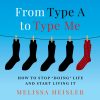Set Yourself Free
Recently I was triggered by a situation. The situation does not matter. What matters is that I was triggered and fell into the rabbit hole of anger, self-pity, depression, guilt, and the desire for confrontation and revenge. This was not an enjoyable experience. I felt wronged and victimized, and felt an overwhelming desire to “put someone in their place.” If you have been reading my blog for any amount of time, you know this is not my normal modus operandi.
The truth is that I am human. And like all humans, I am triggered from time to time. As many, I am triggered when running into a current situation or individual that mirrors a deep-seated hurt or a traumatizing incident from the past. Many times the current situation is really not that important, but when layered with decades of previous hurts from similar sources, the trigger can become very painful and immobilizing. The gift of the trigger is that it brings to the surface unresolved issues from our past which can now be resolved. Here is the process I use:
Recognize When You are Triggered: Are you constantly thinking about a certain situation? Are your emotions high? Are your thoughts cloudy? Do you feel like you can do nothing until a situation is resolved? Are you attacking yourself or someone else due to the situation?
Look for the Theme: Look at your current situation. How is it like pains from the past? Are there similar characters? Similar events? Similar circumstances? Look at the current hurt and all the previous hurts and uncover the common theme. What is the root cause of the trigger? What does it say about you? What does it say about the others involved? If this theme was a movie, how would you describe the storyline or message? Why does this situation trigger you? How does it reflect how you see yourself or the world?
 Look for the Gift: Once you understand the theme of the trigger, look for the gift it has given you. Not only is this a time to resolve the current issue and hopefully put to bed a long ago issue, but it is also an opportunity for growth. In learning to accept, forgive, or act in a healthy way in regards to the trigger, what does it mean for your personal growth? Do you need to learn to speak up for yourself? Do you need to learn to understand and forgive? Is it time to release yourself from the role of victim and take charge of your life?
Look for the Gift: Once you understand the theme of the trigger, look for the gift it has given you. Not only is this a time to resolve the current issue and hopefully put to bed a long ago issue, but it is also an opportunity for growth. In learning to accept, forgive, or act in a healthy way in regards to the trigger, what does it mean for your personal growth? Do you need to learn to speak up for yourself? Do you need to learn to understand and forgive? Is it time to release yourself from the role of victim and take charge of your life?
Release the Past: Once you can see the larger theme, analyze your current pain and determine what is from the current situation, and what is from long ago hurts. Put the past hurts on the side so you can address the current situation clearly. You can not fix pains from years ago, but you can change this current situation. And in healing your current pain, you can hopefully also release the past.
Act Not React: Triggers are knee-jerk reactions. Reactions to triggers are not conscious, but deeply unconscious and emotional. Bring your pain to the surface and choose to act, not react. Look for solutions. Determine the best course of action. In looking at the life you want, choose how to proceed. By breaking the cycle of unconscious emotional reactions, you are empowered to make health choices when addressing difficult situations.
Practice Compassionate Forgiveness: Just as your triggers bring you back to your core vulnerabilities, recognize the humanity and challenges of the others involved. Seek to understand their motivation and viewpoint. Address them with kindness not anger – for they have given you the gift to resolve your trigger. Forgive the situation and everyone involved including yourself. In forgiveness you are releasing the trigger’s hold on you.
Keep an Inventory: As you recognize when you are triggered and why, write it down. Then next time you are triggered, you may not jump blindly into the negative emotional cycle regarding a single incident, but will recognize this as one of your themes. Expanding the incident into your larger lessons in life provides you with the opportunity to address the situation differently, and hopefully releasing you from the trigger forever.
As you move into the holiday season and return to family and old roles, take note of your triggers. Notice when Aunt Lisa comments on your outfit and makes you feel like an awkward teenager. Pay attention when Uncle Bill’s racist jokes make your blood boil. Every incident is an opportunity to stop, to recognize the cause and meaning of the trigger, and to choose a new way of being.





